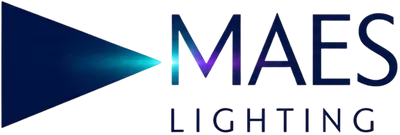
Best Vapor-Tight LED Lighting for Wet Areas | Maes Lighting
Ditch the Drip: Illuminating Wet Areas with Vapor-Tight LED Power
Lighting wet areas, such as wash bays, food processing plants, or outdoor commercial spaces, demands fixtures that can withstand moisture, dust, and corrosion while delivering bright, reliable illumination. Vapor-tight LED lights are the ideal solution, offering durability and energy efficiency in challenging environments. At Maes Lighting, we provide top-quality vapor-tight LED lighting designed to keep your wet areas safe and well-lit. This guide explores how to choose and implement vapor-tight LED lights for optimal performance in wet environments.
Why Vapor-Tight LED Lighting Is Essential for Wet Areas
Wet areas are prone to moisture, splashes, and humidity, which can damage standard lighting and create safety hazards. Vapor-tight LED lights, with their sealed, weather-resistant designs, prevent water ingress and ensure consistent performance. According to OSHA standards, lighting in wet locations must be protected against moisture to safeguard workers and equipment. Our wet location lighting meets these rigorous requirements, making it perfect for demanding environments.
Benefits of Vapor-Tight LEDs in Wet Environments
Vapor-tight LED lights offer several advantages over traditional lighting options:
Moisture Resistance: IP65 or higher ratings protect against water jets and dust.
Durability: Corrosion-resistant materials withstand harsh conditions.
Energy Efficiency: LEDs reduce energy costs compared to fluorescent or incandescent bulbs.
Learn more about wet location lighting at Worksite Lighting.
Key Factors for Choosing Vapor-Tight LED Lighting
To select the best vapor-tight LED lighting for your wet areas, consider these critical factors:
1. IP Rating for Moisture and Dust Protection
An IP65 or higher rating ensures the fixture is sealed against water jets, dust, and debris, making it ideal for wash bays or food processing areas. For high-pressure washdowns, opt for IP69K-rated lights. Maes Lighting’s IP65-rated LEDs provide robust protection. Discover IP rating standards at LED Lighting Supply.
2. Durability and Material Quality
Wet areas expose lighting to corrosion, humidity, and physical impacts. Choose fixtures made from stainless steel, polycarbonate, or aluminum for long-lasting performance. Our corrosion-resistant LEDs are built to endure harsh conditions. Learn about durable lighting materials at Larson Electronics.
3. Brightness and Light Quality
High lumen output (10,000+ lumens) ensures clear visibility in wet environments, while a Color Rendering Index (CRI) of 80 or higher provides accurate color representation for tasks like food inspection. LEDs with 5000K–6500K color temperature mimic daylight, enhancing safety and precision. Explore light quality benefits at Lightology. Our high-lumen LED fixtures deliver superior illumination.
4. Energy Efficiency and Cost Savings
Vapor-tight LEDs consume up to 50% less energy than traditional bulbs and last over 50,000 hours, reducing maintenance and utility costs. This is especially beneficial for 24/7 operations like car washes or processing plants. Check out energy-saving insights at Energy Star. Maes Lighting’s energy-efficient LEDs help lower operational expenses.
5. Application-Specific Features
Different wet areas require tailored solutions:
Food Processing: IP69K fixtures for frequent washdowns.
Car Washes: High-lumen LEDs for visibility in wet, misty conditions.
Outdoor Areas: Weatherproof lights for parking lots or loading docks.
Our customizable lighting solutions meet specific needs. Learn about wet area applications at PFS Lighting.
Vapor-Tight LEDs vs. Traditional Lighting
Vapor-tight LED lighting outperforms fluorescent and incandescent options in wet environments:
LED Advantages: Longer lifespan, higher efficiency, better CRI, and robust moisture resistance. LEDs produce less heat, reducing condensation risks.
Traditional Drawbacks: Higher energy use, shorter lifespan, and susceptibility to water damage. Fluorescent bulbs contain mercury, complicating disposal.
For a detailed comparison, visit Commercial Lighting Solutions.
Installation and Maintenance Best Practices
Proper installation and maintenance ensure vapor-tight LED lighting performs optimally:
1. Hire Certified Professionals
Work with licensed electricians to ensure compliance with NEC standards for wet locations.
2. Optimize Fixture Placement
Mount lights close to walls or ceilings to minimize water exposure while ensuring even illumination. Our wet area lighting guide offers placement tips.
3. Regular Maintenance
Inspect seals and clean lenses to maintain brightness and prevent mold growth. Learn more at Maes Lighting’s maintenance blog.
4. Ensure Proper Sealing
Verify that fixtures are tightly sealed to maintain their IP rating, as required by OSHA standards.
Why Choose Maes Lighting for Wet Area Solutions?
At Maes Lighting, we offer industry-leading vapor-tight LED lighting designed for wet and harsh environments. Our fixtures meet IP65, IP69K, and OSHA standards, ensuring safety, durability, and efficiency. With customizable options and expert support, we help you illuminate your wet areas with confidence.
Ready to upgrade your wet area lighting? Contact us at or visit Maes Lighting for a free quote. Explore our wet location lighting today.



